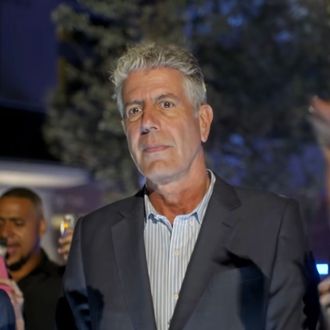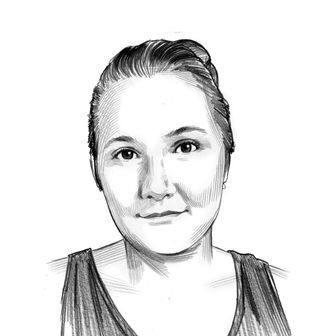
Morgan Neville’s new documentary, Roadrunner: A Film About Anthony Bourdain, uses behind-the-scenes video footage and archival audio recordings to paint an intimate portrait of the iconic chef-author-travel host, who died by suicide in 2018. But while Neville and his team stitched together audio clips from podcasts, radio appearances, audiobooks, and voice-over sessions so that Bourdain would narrate his own posthumous documentary, a few lines had to be created digitally. “I created an A.I. model of his voice,” Neville told The New Yorker. As in, a deepfake. “If you watch the film … you probably don’t know what the other lines are that were spoken by the A.I., and you’re not going to know,” he continued. “We can have a documentary-ethics panel about it later.”
That documentary-ethics panel seems to be playing out on Twitter, where film critics and fans expressed discomfort at the idea of Bourdain’s voice being used to express things he never actually said, especially considering he once accused the Travel Channel of editing his voice-over on No Reservations to make it sound like he was endorsing Cadillacs. Neville provided more details in an interview with GQ, clarifying that he wanted to include some thoughts that Bourdain had written, but never actually said aloud.
“I wasn’t putting words into his mouth,” he explained. “I was just trying to make them come alive.” Neville also indicated that he got the blessing of Bourdain’s widow and literary agent, who told him, “Tony would have been cool with that.” Tony may or may not have been cool with that, but the Twitterati certainly isn’t.
Update July 15, 8:40 a.m.: Bourdain’s estranged wife, Ottavia Busia, has made it clear that she didn’t give Neville her blessing to use the Tony deepfake, despite his claim to GQ. “I certainly was NOT the one who said Tony would have been cool with that.,” she tweeted in the early hours of Friday morning.


